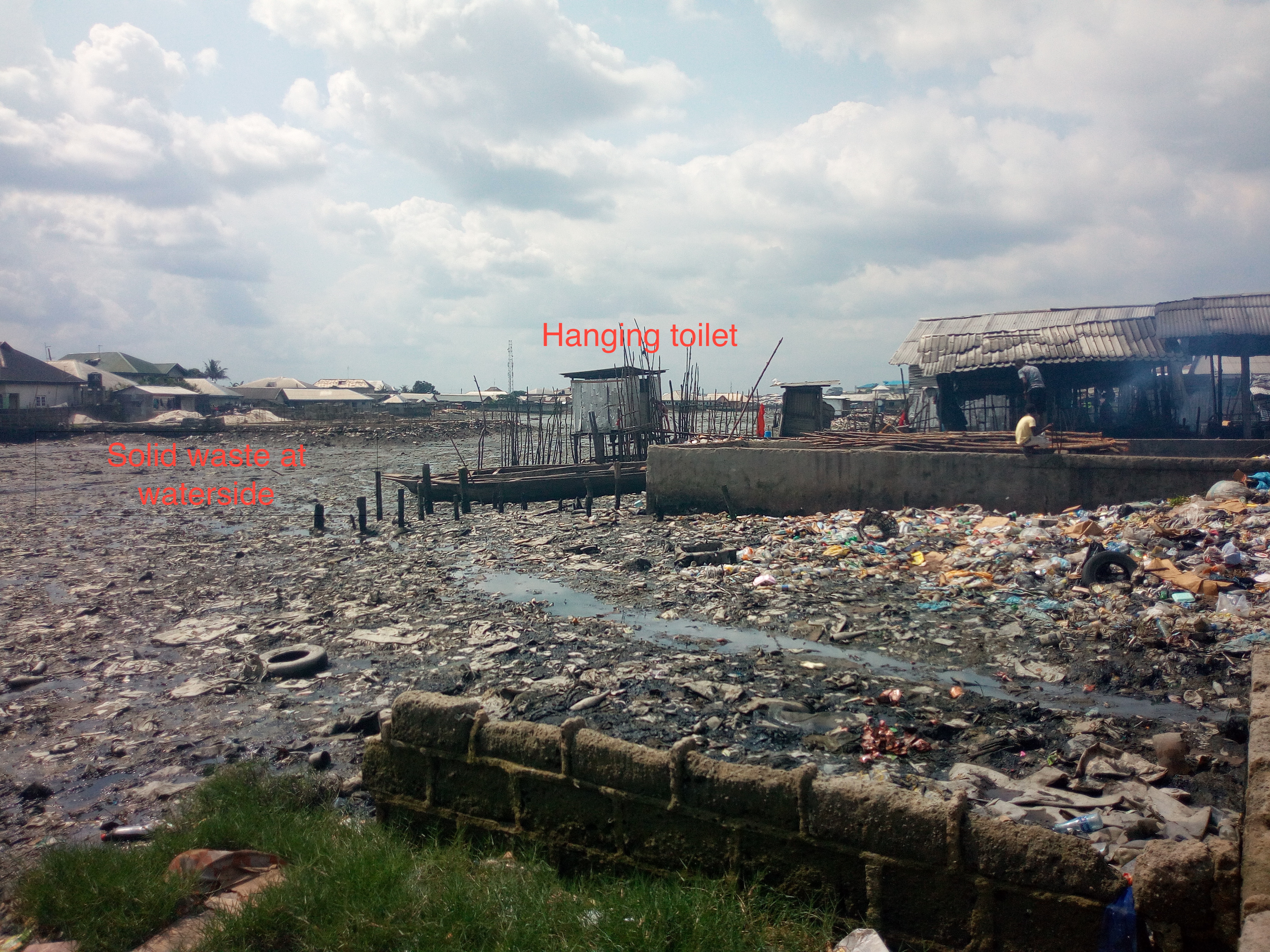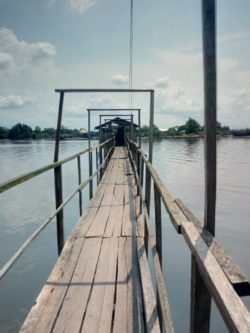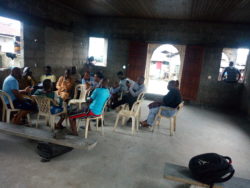Sanitation coverage in waterfront communities of Port Harcourt, Nigeria

 Dr Chindo Nwankwo, Commonwealth Rutherford Fellow, visiting from University of Port Harcourt, Rivers State, Nigeria
Dr Chindo Nwankwo, Commonwealth Rutherford Fellow, visiting from University of Port Harcourt, Rivers State, Nigeria
Approximately 844 million people do not have clean water and 2.3 billion do not have access to a decent toilet. Many of these people live in Africa and Asia. Every two minutes a child under five dies from diarrheal diseases caused by polluted water and poor sanitation. How can we make clean water, decent toilets and good hygiene normal for everyone by 2030?
On the 8th of November 2018, President Mohammad Buhari of Nigeria declared a state of emergency in Nigeria’s WASH sector. Over the past five years, this sector has experienced poor governance, which has resulted in the escalation of the human practice of open defecation, and environmentally disturbing sanitation cultures. The President directed relevant authorities in States and Local Government Areas (LGAs) to strive to proactively implement the National WASH Action Plan (NWAP), emphasising that support from the Federal Government to States and LGAs will be based on their commitments to apply the NWAP framework in a way that will put an end to open defecation by 2030 in their respective States and LGAs. Despite the President’s position, most WASH practitioners are sceptical as to how the NWAP will be implemented in Nigeria.

Hanging toilet (Chindo Nwankwo)
I have recently been carrying out field work in the city of Port Harcourt, in Nigeria’s Rivers State, to understand basic sanitation coverage in several informal waterfront communities. Port Harcourt is the main hub of the Niger Delta region, hosting many multinational oil and gas companies. Several reasons informed the choice of the selected communities, including: high population density, proximity to navigable waterways, low level of basic sanitation practices and their economic importance in relation to seafood harvesting and markets.
While working in the waterfront communities, I noticed massive discharges of human excreta into the environment, as well as unhealthy hygiene cultures and chronic poverty – all linked to the poor supply of basic amenities (e.g. toilets, boreholes) and services (e.g. solid waste management and drainage structures). A few boreholes exist, but they are owned by private water proprietors.
During interviews and focus group discussions, local communities cited government insincerity to solve the sanitation challenges around the waterfronts. Their immediate challenge is the ‘backwash’ (due to tidal rise from waterside) which occurs 80% of the year. This backwash brings debris, solid waste and human excreta back to the community. These pile up to become a huge mess and an environmental hazard (as seen in the top photo). Some communities have been creating solid waste “piles” at the riverbanks, a form of land reclamation to protect their communities from the effect of the tidal rise.

Community consultation (Chindo Nwankwo)
Sanitation facilities are mostly in the form of ‘hanging toilets’ (those where the excreta drops directly into the watercourse) that are privately owned. Residents pay a token (about 10 pence) to use private toilets. Some houses with toilets connect their outlets to open channels that drain to the waterside, adding to the problem of open defecation. Pit toilets are generally non-existent in the waterfronts because households are clustered together, making it difficult to construct them. One resident in the community commented on pit toilets, saying that: “even if we have pit toilets, they cannot function properly due to the fact that the removal of its contents is done manually and trucks cannot easily access our communities”. Regarding future plans for waterfront communities, local leaders collectively indicated that they would need the construction of proper drainage systems as a way to curb the menace of flood from upland areas, as well as well-structured toilets and functional water facilities.
Local stakeholders and government officials need to work collaboratively to coordinate the WASH sector in Rivers State. Increased WASH financing is needed, focusing in particular on the sanitation component. At the moment, sanitation receives insignificant attention. Commitments to the WASH sector should be measured by increases in budgetary allocations and effective implementation of the NWAP agenda. All stakeholders in the WASH sector (e.g., civil society organisations, development partners and international donors) must be united, working proactively to successfully realise the WASH-related SDGs by 2030, creating platforms to support increased investments in advocacy and enlightenment.
